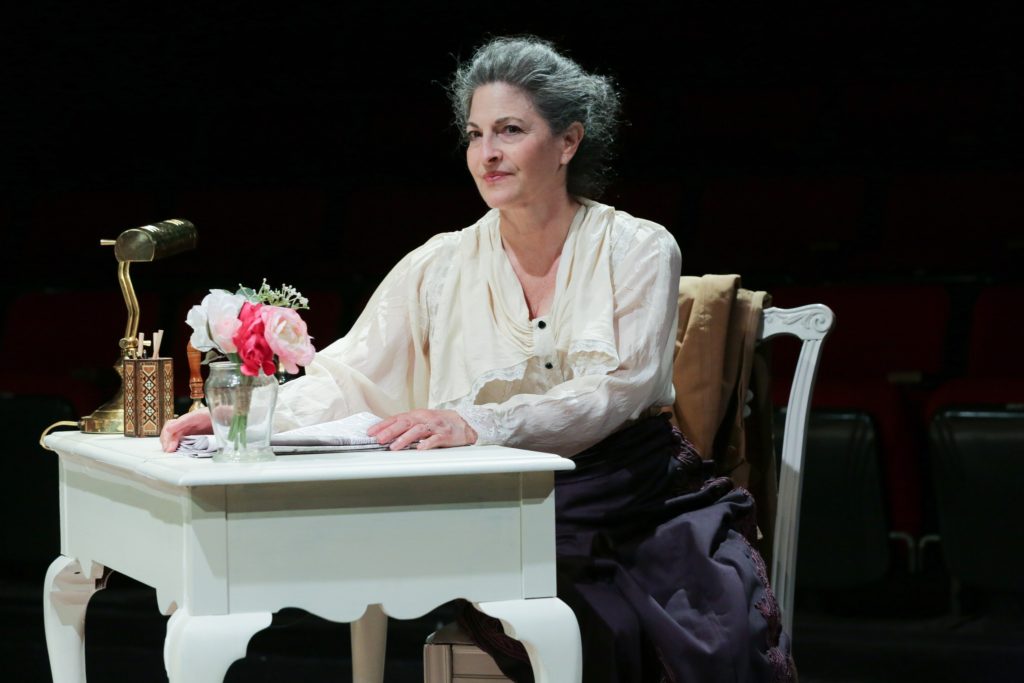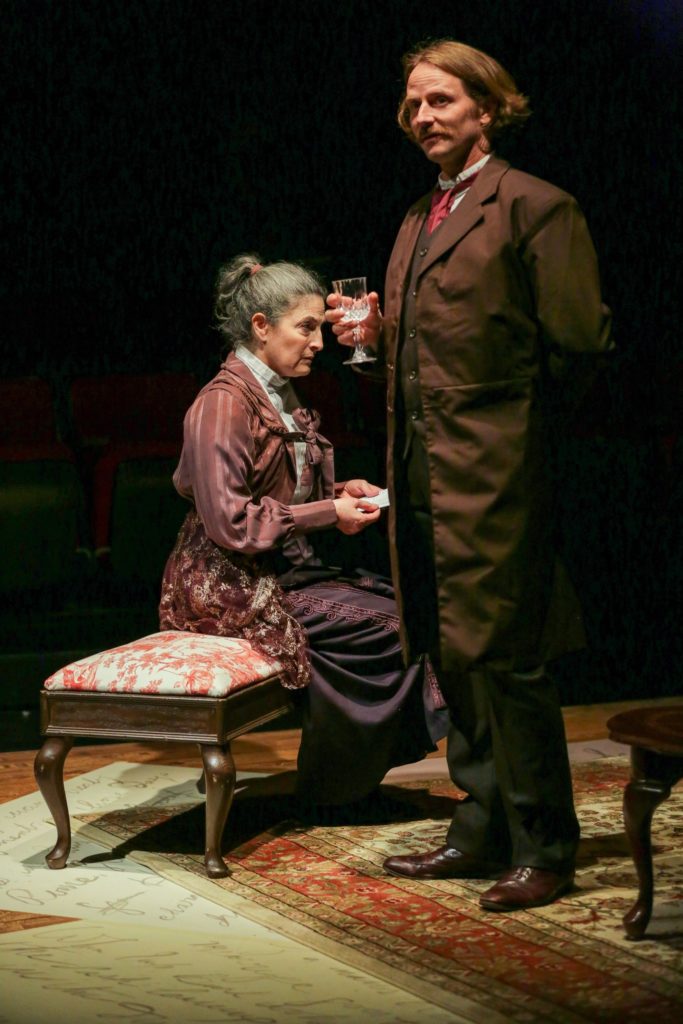
Photo by Jason Grow. Newhouse as Wharton.
Presented by Gloucester Stage Company
By Annie Undeland
Directed by Judy Braha
Featuring Sarah Newhouse* as Edith Wharton, Ryan Winkles* as Morton Fullerton, Joshua Wolf Coleman* as Henry James, and Bridgette Hayes as Posy.
June 8 – 22, 2022
Gloucester Stage Company Theater
267 East Main St
Gloucester, MA
95 minutes without intermission
Review by Craig Idlebrook
GLOUCESTER, Mass. — How do you bring an iconic author’s love letters to life? That was the unenviable task that playwright Annie Undeland volunteered to do when she came across the letters Edith Wharton wrote to a lover during an extramarital affair. In reading the letters, Undeland has said she was struck how Wharton, who was known to be a refined and biting observer of Gilded Age society, became so nakedly besotted and unguarded, like any fool in love.
In Mr. Fullerton, Between the Sheets, Undeland attempts to create a cocoon of time to distill the love affair between Wharton (Sarah Newhouse) and Morton Fullerton (Ryan Winkles), an American correspondent in Paris. The intent, it appears, is to give us an intimate view to a luminary author losing her heart and her head during a brief interlude of sexual awakening.
The work of Gloucester Stage scenic designer Jenna McFarland Lord and lighting designer Kat C. Zhou blends together beautifully to capture the heartbeat of this unexpected affair. Set in the literary zenith of 20th century Paris, the lighting and multi-level stage move fairly seamlessly between stodgy sitting rooms and silky bedrooms, creating a gentle murmur of a backdrop for the lovers to meet and swoon.
Unfortunately, I felt as though this romance fizzled before my eyes, and not in the sweetly tragic arc that I believe we are supposed to follow on stage. It’s possible that the play or the production assumes that its viewers will inherently realize the importance of the characters we are seeing, and as such we won’t need a firmer scaffolding to realize the profundity of what is unfolding.

Photo by Jason Grow
We are told of Wharton’s greatness largely through conversations between her and fellow literary luminary Henry James (Joshua Wolf Coleman), as well as through the breathless reverence of her servant, Posy (Bridgette Hayes), but we rarely see her keen mind in action. Likewise, we are given glimpses of James’ mercurial nature (and Wolf Coleman boldly embodies the manic agitation of this writer), but there is not enough there for us to realize what is transpiring in James’ relationship to Wharton before the curtain closes.
With the picture of these two literary heavyweights incomplete, it becomes impossible for Winkles to set the stage ablaze with the sexual spark that is supposed to be between he and Fullerton; we are given to believe he is a rogue and a scoundrel. But we are not given the space to see why he matters or why Wharton fell victim to his charms at that moment in her life.
This incompleteness of the picture mutes Wharton’s descent into love sickness and robs us of its urgency. It also leaves adrift what could have been an illuminating discussion on class between Wharton and Posy. In the end, the action is universally familiar to all who have fallen in love, but it is not profound. To me, the play ended up feeling much like a New Yorker magazine: well written, full of importance, and somewhat inaccessible unless we truly dedicate our focus to it.
